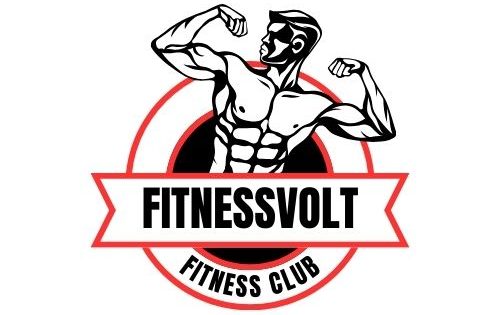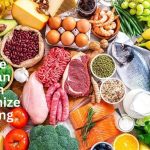The increasing popularity of Veganism isn’t just a trend – it’s a way of living. Perhaps it is for health, moral reasons, or our environmental impact but plant-based diet followers keep growing. But what is a vegan diet exactly, and how can you ease into it? This is a guide that will cover the basics of the benefits and beyond this.
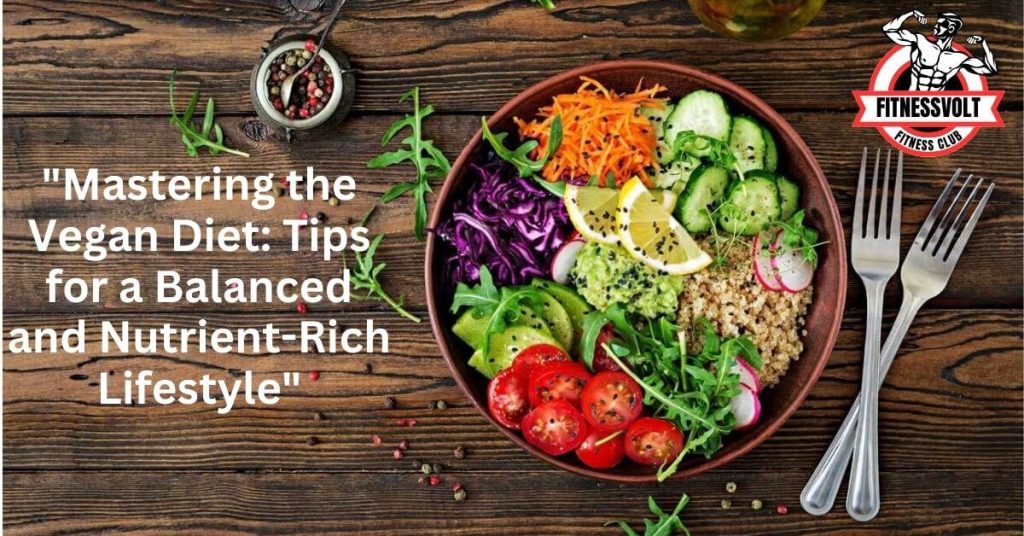
What is a Vegan Diet?
In its essence, vegan eating is nothing different than not consuming any animal products. That means no meat, not even honey. Vegans depend instead on a broad array of plant-based items such as fruits, vegetables, grains, legumes, nuts, and seeds. It is not just a diet but a philosophy usually encompassing the purchase of leather and other things that come from animals.
Brief History of Veganism
Today, Veganism appears to be a very modern movement; yet its roots reach back as far as 5000 years. The word vegan originated in 1944 to describe a person who was living independently from animal exploitation. The prior year our father and some friends decided they needed a word to identify themselves because their choice of what to eat had fallen out of step with mainstream vegetarians. To be fair, the idea of a meatless diet is thousands of years old and goes back to religious figures and philosophical movements in the past.
Why People Choose a Vegan Lifestyle
So why do people become vegan in the first place? For others, it is about health research showing that a plant-based diet can reduce the risk of a number of chronic diseases. For some, it is an ethical choice based on animal rights. Some vegans also follow the diet due to concerns about deforestation, water pollution, and greenhouse gas emissions associated with vector control such as dairy farming.
Health Benefits of a Vegan Diet
Following a vegan lifestyle possesses many health advantages and can offer people with much better life expectancy. Check out some of the central benefits below.
Improved Heart Health
Vegans have a diet abundant in fruits, vegetables, whole grains, and legumes all of which are associated with reduced risk factors for heart disease. They are all rich in fiber, antioxidants, and other beneficial nutrients for our hearts and health. Research has revealed lower blood pressure, lower cholesterol, and even a lower risk of heart attack and stroke among vegans.
Weight Management and Loss
A Vegan Diet: Much More Than A Way Of Eating And The Perfect Solution If You Want To Lose Weight Plant-based foods do also contain fewer calories and less fat than their animal product counterparts, as well as higher levels of filling fiber. Some people find they eat portions just large enough to fill them up without extra added pounds, a major help in weight management or loss.
Lower Risk of Chronic Diseases
There is a lower risk of vegans developing chronic diseases such as type 2 diabetes, certain cancers, and hypertension. One of the key ways these conditions are prevented is through plant foods, which provide an abundance of antioxidants and anti-inflammatory compounds.
Better Digestive Health
Increased fiber from a plant-based diet (a typical vegan diet), helps keep the digestive tract running smoothly. The soluble type of fiber also serves to act as a prebiotic, effectively feeding the friendly bacteria in your gut and ultimately, promoting gut health and reducing the likelihood of food-related issues such as constipation as well as Irritable Bowel Syndrome (IBS).
Enhanced Skin and Hair
Many benefits of a vegan diet can be from the outside in as well. A lot of others have claimed clearer skin, and shinier hair after going vegan. Common wisdom says all the vitamins, minerals, antioxidants, and phytochemicals you find from fruit and vegetables give your skin a clearer tone as well as shinier hair.
Nutritional Considerations for Vegans
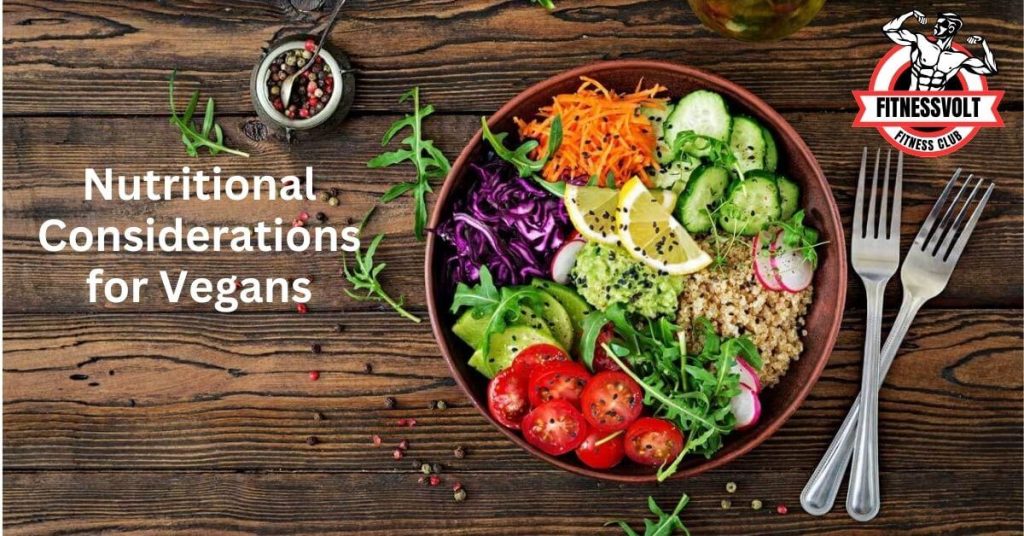
Although a vegan diet can provide many health benefits it is very important to stay mindful of these nutrients and make sure you are supporting your body correctly.
Essential Nutrients for a Balanced Vegan Diet
Protein
Contrary to popular belief, getting enough protein on a vegetarian diet is pretty easy. Great food sources incorporate lentils, chickpeas, tofu, tempeh, and quinoa, which are all good plant-based proteins. Combining other types of protein throughout the day can help ensure you are receiving all essential amino acids.
Iron
Vegans also must consider their iron intake because vegetable sources (non-heme iron) are not as easily absorbed by the body compared to animal products. Excellent sources are lentils, chickpeas, beans, fortified cereals, and spinach. Foods high in Vitamin C, like bell peppers or oranges, help with this.
Calcium
Bone health is important and calcium is critical for maintaining it, however, dairy products are not the only source. Good sources of calcium include leafy greens, fortified plant milk, tofu, and almonds.
Vitamin B12
Vegans may have a hard time maintaining adequate vitamin B12 levels, as this vitamin is found primarily in animal products. But, fortified foods such as plant milk (i.e., soy or almond), breakfast cereals, nutritional yeast, and B12 supplements are also viable to provide you with your necessary dosage.
Omega-3 Fatty Acids
There are also studies that show the benefits of omega-3s for brain health, which is mostly found in fish. For vegans, good sources of essential fats include flaxseeds, chia seeds, walnuts, and algae-based supplements.
How to Avoid Common Nutritional Deficiencies
This keeps your diet from lacking any essential nutrients, which is important for staying healthy. Use apps or consult a nutritionist to measure your daily intake of essential nutrients. Supplements can also be a useful way to cover any dietary deficiencies.
Environmental and Ethical Benefits of Veganism
Benefits of a vegetarian dietThe benefits of a vegetarian diet stretch far beyond individual health. Now let us go over more details about how being a vegan influences the environment and is in tune with ethical considerations.
Reducing Carbon Footprint
Among the biggest contributors to greenhouse gas emissions is animal husbandry. Eating a vegetarian diet is one of the easiest ways to lower your carbon footprint. You can use one-tenth of the energy, one-third of the land and a quarter of the water to produce plant-based diets making them much healthier for our planet.
Animal Welfare and Ethical Considerations
Others choose veganism as they do not want to be involved in animal exploitation. At its core, the ethical case for veganism is about animal rights and holding that non-human animals have a right to exist free from harm and exploitation. They look to take advantage of these animals, and by not supporting them through food we can greatly reduce that demand.
Conservation of Resources
Furthermore, a vegan diet helps with the conservation of natural resources as well. On the other hand, raising food animals directly competes with water, feed, and land. When we eat plants from these sources, we save more resources and lessen the load on our planet´s ecosystems.
Common Challenges of a Vegan Diet
Although the advantages of embracing a plant-based diet are evident, adopting this lifestyle may be not easy for some.
Social and Cultural Obstacles
Eating is typically a social activity, and being vegan can sometimes put a kink in social plans. From having to explain your dietary decisions at a family reunion, to finding suitable alternatives…. it can be tough.
Dealing with Cravings
Many vegan newbies (and omnivores who are going veg) realize that they really like the way crayuda* and other raw meals make them feel….however still have cravings for non-vegan food. Seek out delicious vegan alternatives and remember that as you become more accustomed to the new foods, your cravings will usually lessen over time.
Eating Out as a Vegan
For many, dining out is perhaps the most difficult thing to do as a vegan; this seems like it is only accountability of location. Most of the time, many restaurants are now also offering vegan alternatives which is a widely helpful one, and being able to adapt your meal is always handy.
Navigating Social Events and Holidays
Holidays and social gatherings are usually centered around traditional animal-dense meals. Even going as far as to bring something if you are vegan or making sure the host knows what your dietary needs are prior so that YOUR bases are covered.
Tips for Successfully Adopting a Vegan Diet
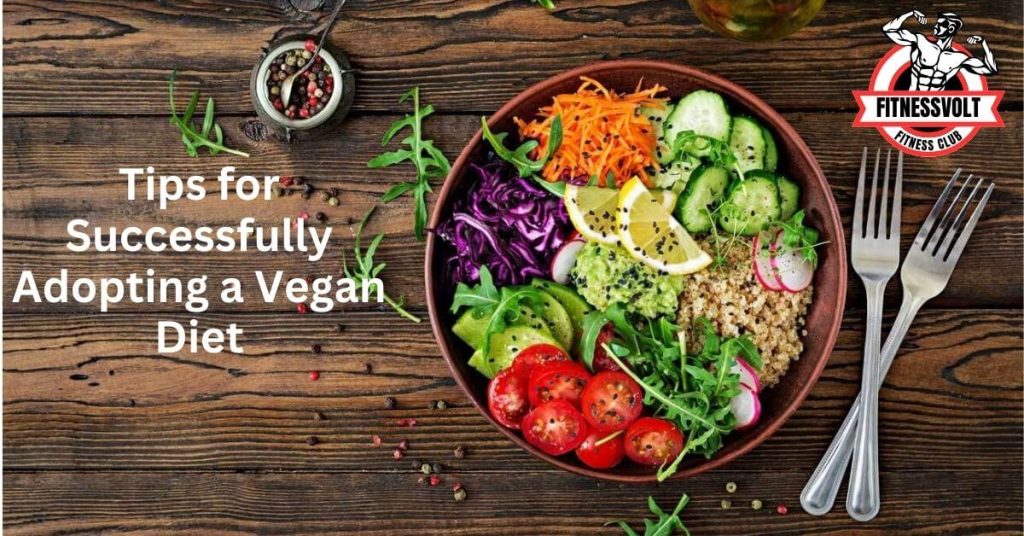
Ready to make the switch? To make the transition easier, here are 8 tips for going vegan and how you can smoothly adjust to a plant-based diet.
Start Gradually
For those who are eager but might be intimidated by switching to a vegan diet cold turkey, the easiest way is a slow cut of animal products. You could start with meat, then dairy, and eventually eggs and all other animal products.
Meal Planning and Preparation
Meal prepping is key to successfully maintaining a vegan meal plan. Spend some time in your week prepping meals and snacks so you always have a vegan meal even when it is busy.
Finding Vegan Alternatives
There are vegan alternatives for nearly every type of food these days, from plant-based meats to dairy-free cheeses. Experiment with different brands and products to find the ones you enjoy most.
Educating Yourself and Others
The more information you have on veganism, the less difficult it will be for you to maintain your choice. Learn about nutrition, animal welfare, and the environmental effects of various types of diets. And have answers for your nosy friends and family members.
Staying Motivated and Inspired
Stay driven by following some vegan influences, hopping online, and discovering other vegans, as well as trying new recipes! There was once a reason that you chose to live this lifestyle so remind yourself of it, and along the way pat yourself on the back.
Delicious and Nutritious Vegan Recipes to Get You Started
Right about now you might want to test out some recipes that can impress your friends when they argue you with about trying vegan.
Breakfast: Vegan Smoothie Bowls
The smoothie bowls are just a breakfast starter. Smoothie-frozen berries, bananas, spinach, and plant-based milk For an even more epic meal, sprinkle granola and a handful of chia seeds over the top, followed by whatever fruit you have on hand.
Lunch: Quinoa and Avocado Salad
So it is not only fulfilling but also provides you with all the nutrients. Combine cooked quinoa, diced avocado, cherry tomatoes, and black beans in a mixing bowl and toss with a light squeeze of lime juice Lightly sprinkle with cilantro for a touch of freshness and color.
Dinner: Lentil and Vegetable Stir-Fry
A stir-fry of lentils, bell peppers, broccoli, and carrots makes a great meal on its own. Pour over brown rice or noodles and top with a little soy sauce.
Snacks: Energy Balls and Vegan Yogurt
Oats Muffin, cake, or cookie energy ball made of date and nut butter Serve with vegan yogurt for an extra protein hit.
Desserts: Vegan Chocolate Cake
True, and yes you can still enjoy desserts while being vegan! A decadent vegan chocolate cake that is rich and moist with added almond milk and coconut oil to help curb your sugar cravings!
Conclusion
Bottom Line. Going vegan is one of the best decisions you can make. It’s a path that not only leads to better health for you but also to conserve your ecosystems and animals. Just do it one step at a time and as you feed yourself each day, take in some of the vegan facts that will motivate you to keep going. Then why not just take the plunge and begin your vegan journey today?
